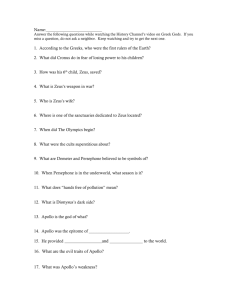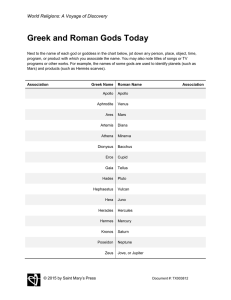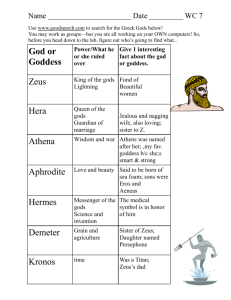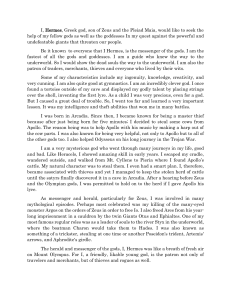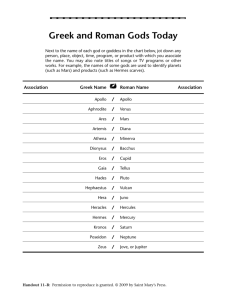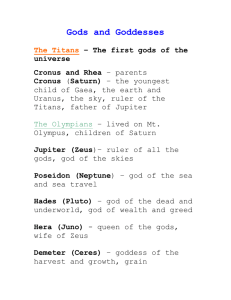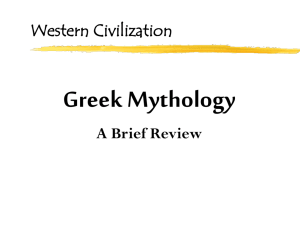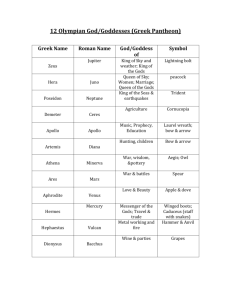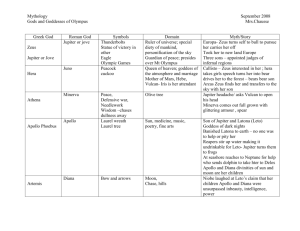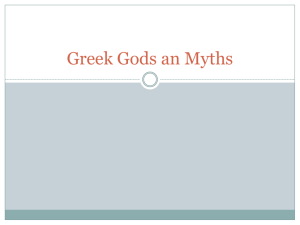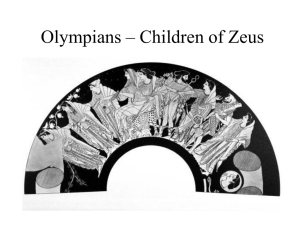Pallas Athena/Minerva
advertisement
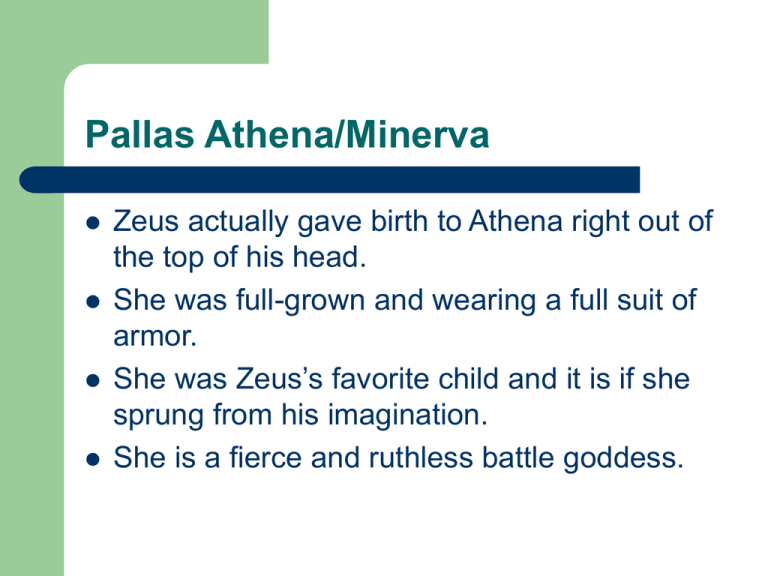
Pallas Athena/Minerva Zeus actually gave birth to Athena right out of the top of his head. She was full-grown and wearing a full suit of armor. She was Zeus’s favorite child and it is if she sprung from his imagination. She is a fierce and ruthless battle goddess. She only defends the state and home. She is the goddess of the city and the protector of civilized life, crafts, and agriculture. She contributed to society by inventing the bridle and helping man to first tame horses. She is one of three virgin goddesses and was the leader of them. These virgin goddesses are Maidens or Parthenes. Her temple was called the Parthenon. At first she was known as a goddess of battle or war but later poetry emphasizes her virtues as wisdom, purity, and reasoning (logic). Mini bio information. She was known for her gray eyes, although sometimes the translation would indicate they were flashing instead. Her favorite city was Athens. Her tree was the olive tree. Her bird was the owl indicating wisdom. Phoebus/Apollo Apollo was the son of Zeus and Leto and was born in Delphi. He was considered the most Greek of all the gods. He is similar to a jack-of-all-trades in that he can do and is responsible for many different things. According to poetry, he is a master musician who plays the lyre. He is the archer god who has silver arrows. He is a healer and first taught man about medicine. He is the god of light and there is no darkness around him. This gives him the honor of being the god of truth. Apollo had a plethora of names. He was known as Delian of Delos (birthplace). He was also known as Pythian. He acquires this name by completing a dangerous task. He went into the cave of Parnassus with a python snake and killed it with his lightening fast silver arrows. He was also known as Thelycian. Thelycian was a three-part god, the wolf god, the god of light, and the god of Lycia. In the Iliad he is called Sminthian who happened to be a mouse god. It is not known whether he was given this name because he protected mice or destroyed them. Phoebus was also called the sun god even though Helios was the true sun god. Characteristics of Apollo He was benevolent. He provided a direct link between man and the gods. He could show mortals how to appease the gods so their sins could be washed away. Conflicts in Character Myths about Apollo contain very few accounts of cruelty and pitilessness. There are two ideas fighting inside of him. The first idea is primitive and crude (the unrefined idea). An example of this might be literally barbaric behavior. Another example would be a rough draft. The second idea would be beautiful and poetic. This would be refined and civilized behavior like you would see at a formal dinner party. It also would be a finished and flawless piece of work. Mini bio information His tree is the laurel tree. His sacred animals are dolphins and crows. Let’s read the poem on page 30 line by line out loud.
